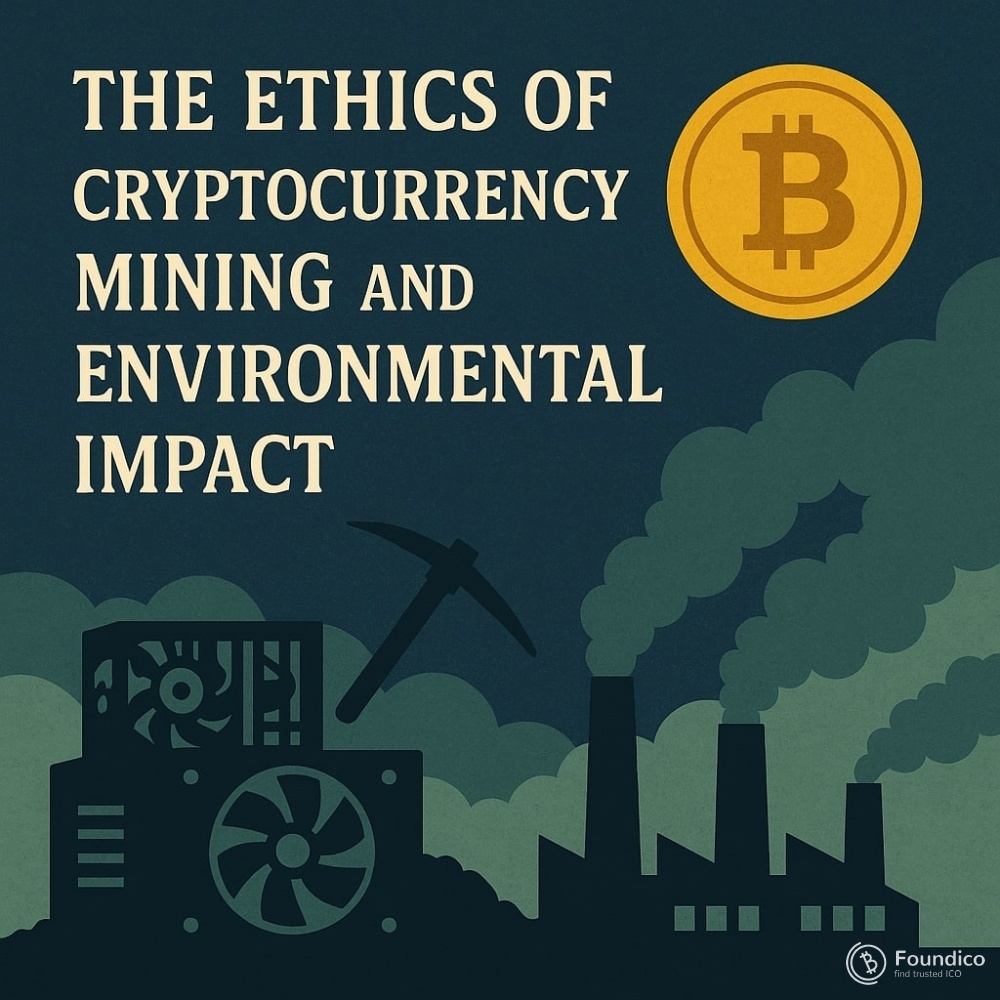The Ethics of Cryptocurrency Mining and Environmental Impact

By Dr. Pooyan Ghamari, Swiss Economist and Visionary
Cryptocurrency mining has long been a subject of fascination and controversy. While it represents the technological backbone of decentralized finance, ensuring transparency and security on blockchain networks, it also consumes enormous amounts of energy. The ethical debate surrounding mining is no longer confined to developers and economists—it has reached policymakers, environmentalists, and everyday investors.
At the center of the discussion lies a crucial question: Can we continue to innovate in the digital economy without compromising the planet’s ecological balance?
The Ethical Dimensions of Mining
1. Energy Consumption vs. Financial Freedom
Proof-of-Work (PoW) mining, used by Bitcoin and other cryptocurrencies, requires massive computing power to validate transactions. Supporters argue that this is the cost of ensuring a transparent and censorship-resistant financial system. Critics counter that no financial freedom should come at the expense of unsustainable resource consumption.
2. Equity and Accessibility
Mining tends to favor those with access to cheaper electricity and advanced hardware, creating inequalities. This raises ethical concerns about whether decentralized finance is truly democratic, or whether it replicates existing disparities in wealth and opportunity.
3. Impact on Developing Nations
In some countries, mining operations exploit low electricity costs at the expense of local communities, straining infrastructure and raising prices for ordinary citizens. The ethical dilemma is whether global miners should prioritize profit over the welfare of local populations.
The Environmental Footprint
-
Carbon Emissions: Mining operations, especially those powered by coal-based electricity, contribute heavily to global greenhouse gas emissions.
-
Electronic Waste: Obsolete mining equipment often ends up as electronic waste, posing additional environmental hazards.
-
Water Usage: Some mining facilities use significant amounts of water for cooling, affecting local ecosystems.
Pathways Toward Ethical Mining
1. Transition to Renewable Energy
One of the most impactful solutions is the use of solar, wind, and hydroelectric power for mining operations. Several large-scale mining farms are now relocating to regions rich in renewable resources.
2. Proof-of-Stake (PoS) and Alternative Models
Blockchain innovation has introduced less energy-intensive consensus mechanisms, such as Proof-of-Stake. Ethereum’s shift to PoS reduced its energy consumption by over 99%, setting an example for sustainable evolution.
3. Carbon Offsetting and Accountability
Some mining operations purchase carbon credits or invest in reforestation to offset their environmental impact. While not a perfect solution, these measures demonstrate a willingness to balance innovation with responsibility.
4. Hardware Recycling and Efficiency
Developers are exploring ways to recycle older mining equipment and design hardware that maximizes energy efficiency, reducing waste and costs simultaneously.
A Balanced Perspective
Cryptocurrency mining cannot be seen purely as a technological triumph or an environmental threat. It embodies both. The ethical challenge is to strike a balance—embracing innovation while minimizing harm. Investors, miners, and regulators must work collaboratively to establish a framework where financial progress does not come at the planet’s expense.
The ethics of cryptocurrency mining extend beyond technical debates into the realms of philosophy, economics, and environmental stewardship. As Dr. Pooyan Ghamari, Swiss Economist and Visionary, I believe that the future of digital finance depends on our ability to align technological growth with ecological sustainability. Mining must evolve—not disappear—if it is to serve as a pillar of the decentralized economy while respecting the fragile balance of our natural world.
